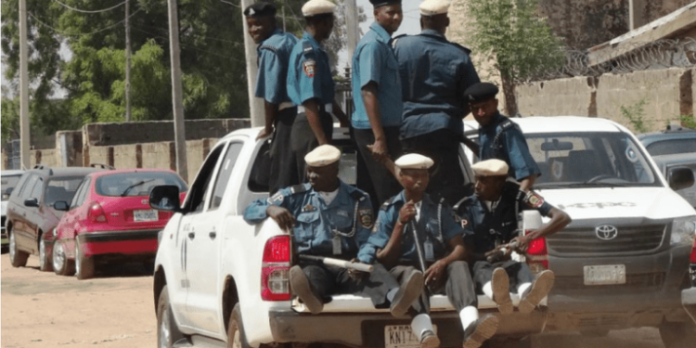In a renewed effort to enforce Islamic moral codes, the Yobe State Hisbah Commission has destroyed a large quantity of confiscated alcoholic drinks and prosecuted several suspects arrested for alleged prostitution and alcohol-related offenses.
The major operation was carried out on August 19 in Garin Alkali town, located in the Walawa community of Gashua Local Government Area. The exercise also extended to Bursari Local Government Area, where more seized alcoholic beverages were set on fire.
The Chairman of the Yobe State Hisbah Commission, Dr. Yagida Abubakar, confirmed that the crackdown was in line with the Commission’s duty to uphold Sharia law and preserve public morality, as laid down in the laws of Yobe State.
“Alcohol consumption and prostitution are heinous acts prohibited in Islam. This destruction exercise is in continuation of our duty to uphold Sharia and moral values in the state,” Dr. Abubakar said during a press briefing.
Following the operation, suspects arrested during the raid were immediately arraigned before a Sharia court in Gashua for prosecution. According to the Commission, all legal procedures were followed in line with Islamic and state laws.
Yobe is one of several northern Nigerian states that have adopted Sharia law since 1999, when the country’s return to civilian rule allowed states more legislative freedom. Sharia law is applied mainly to Muslims in the state and covers aspects of personal conduct, including bans on alcohol and prostitution.
The Hisbah Commission is an Islamic law enforcement body, active in several northern states including Kano, Zamfara, and Yobe. The agency is tasked with ensuring that residents, particularly Muslims, adhere to the teachings of Islam, especially regarding morality and public behavior.
In Yobe State, the activities of Hisbah include monitoring public gatherings, ensuring modest dress codes, discouraging drug abuse, and checking immoral behavior in line with Islamic principles.
Dr. Yagida Abubakar emphasized that the Hisbah will not relent in its responsibilities. “This is a continuous exercise. We will continue to carry out our mandate without fear or favour. We are committed to cleansing our communities of immoral acts and ensuring the sanctity of Sharia,” he said.
The raid in Garin Alkali and nearby areas caused a stir, with some residents supporting the actions of Hisbah while others expressed concern about the treatment of suspects and the destruction of property.
Some community leaders praised the operation, noting that it would help curb rising cases of drug abuse and immorality, especially among young people.
However, others have called for a more balanced approach that respects individual rights and due process. A civil society advocate in Gashua, who pleaded anonymity, said while the enforcement of religious laws is important, “there must be fairness and compassion in dealing with suspects, especially women who may be victims of circumstance.”
The application of Sharia law in Nigerian states has remained a topic of national discussion, especially when it involves punishments such as public flogging or destruction of private property. While the law is supported by many in the predominantly Muslim north, critics argue it sometimes clashes with the Nigerian Constitution and human rights principles.
In Yobe, the government has repeatedly stated that Hisbah’s actions are guided by state laws and only affect Muslims who voluntarily submit to Islamic law. Non-Muslims are not bound by Sharia provisions in the state.
This latest exercise is not the first of its kind. Over the past few years, Yobe Hisbah officials have carried out similar raids in Damaturu, Potiskum, and Nguru, leading to the arrest of dozens of suspects and the destruction of thousands of bottles of alcoholic beverages.
The Commission says it has also embarked on sensitization campaigns across the state to educate residents on the dangers of alcohol and prostitution, especially among youth and women in vulnerable situations.
As the debate continues, the Yobe State Hisbah Commission has vowed to intensify its operations across all local government areas. Dr. Abubakar called on parents, religious leaders, and community members to support the effort to restore moral values and ensure peaceful coexistence in the state.
“We urge everyone to work with us in building a society that reflects the values of Islam and our cultural heritage,” he said.

